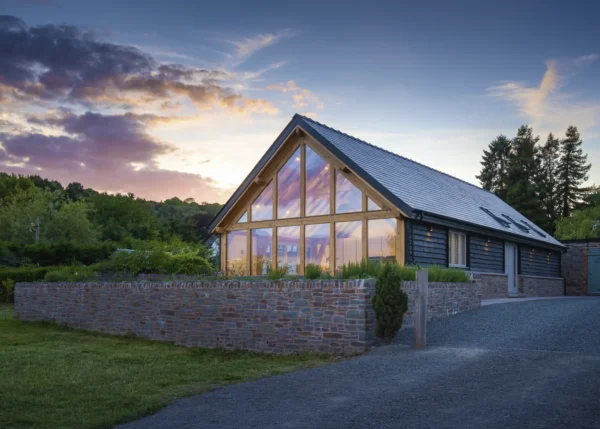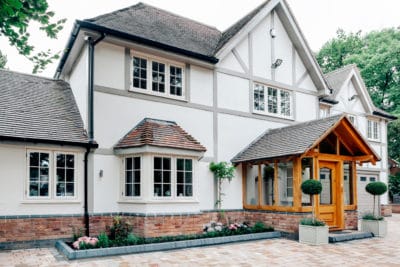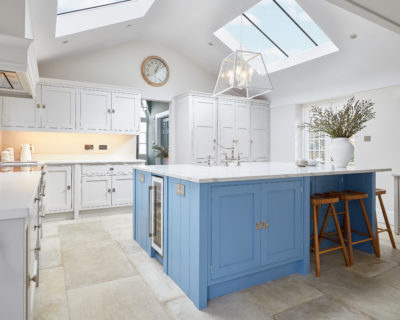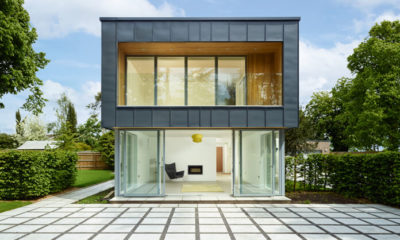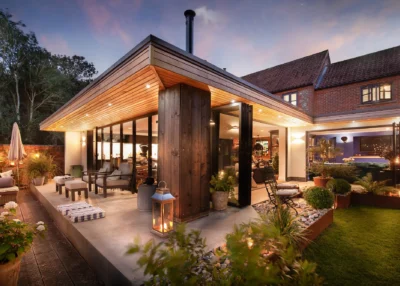Window Prices 2024 – How Much Do New Windows Cost to Buy & Install?
How much do new windows cost to buy and install? Window prices will depend on a variety of factors, from the size of the panels through frame materials, glazing options, colour finishes, installation and more. Of course, window costs count for a major chunk of any UK home building project – potentially accounting for around 5%-10% of a typical self builder’s total construction budget.
Your glazing is also likely to be a pretty permanent part of your finished scheme, playing a key role in the architecture and overall quality of the house. So, it’s worth spending plenty of time at the research stage to ensure you’re buying good quality windows.
Buy cheap, buy twice is an apt adage in this market. Poor-quality windows will not only compromise the look, but they’ll also fall down in terms of durability and longevity. “Generally the better-performing the window is in terms of insulation, airtightness and security, the more it will cost,” says Matt Higgs, managing director at Kloeber.
Size is a major factor in window prices. But what are the other key triggers that push costs up and down? We’ve spoken to two well-respected UK window suppliers and the Build It Estimating Service to break down the considerations in detail and help you better understand how much to budget for your windows.
The window cost information given here is intended as a guide only – but it will be a useful reference point when obtaining specific quotes for your project.
find glazing suppliers in Build It’s Directory
Window Prices – What You Need to Know Before Buying Windows
When researching how much windows cost, remember that it’s worth paying extra for a first-class, high-quality window – and there are options across the board in terms of PVCu, softwood, hardwood, aluminium and composite products. “The standard of the manufacturing process can vary massively, both across the UK and abroad, so make sure you do your research,” says Adrian Wild from the Build It Estimating Service.
In the PVCu sector, for instance, the quality of the blending, extrusion, injection moulding, foil finishing, colour matching and other criteria will all make a significant difference to the lifespan and therefore future maintenance and replacement costs.
Find out how much windows cost at Build It LiveWindows make or break your project, so getting them right is absolutely key. To start with, you need to decide between timber, aluminium, uPVC, aluminium-clad timber and modern timber alternatives. Then should they be double or triple glazed? All these options will be on display at Build It Live, along with the experts who can share their knowledge about the benefits. Explore all the options in one place – only at Build It Live. Watch live presentations on a variety of topics, such as:
Build It Live takes place three times a year in Kent, Oxfordshire and Exeter. The next show will be on 7th and 8th September 2024, in Exeter, Devon. Claim a pair of free tickets today by clicking below and start planning your visit. |
When it comes to understanding what you’re getting for your money, look at the obvious requirements first. “Does the manufacturer’s warranty extend to at least 10 years, for instance? It’s also important to check if the window warranty includes any cover on finishes and fittings,” says Adrian.
Other questions to ask include whether the products carry a BSI Kite Mark and have been assessed by the British Board of Agrement (BBA). Check, too, if the manufacture and supply is carried out under the ISO 9001 quality management system.
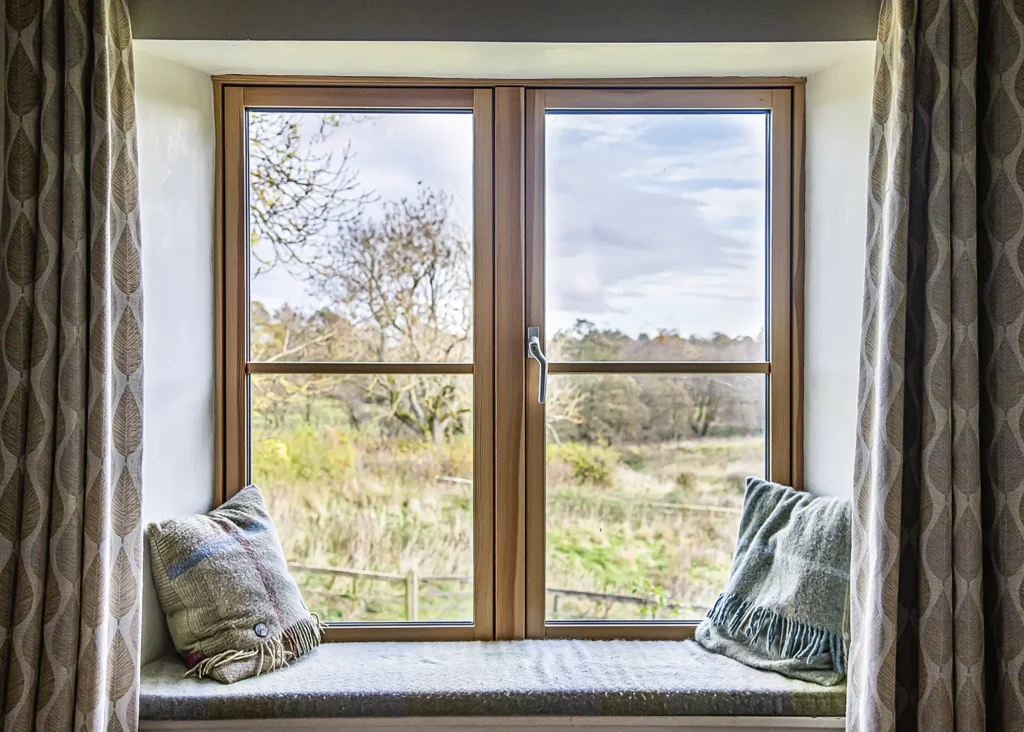
This Build It Award-winning timber alu-clad design from Norrsken is a practical and stylish casement option, manufactured to operate smoothly throughout the entire lifecycle of the product
Ask for evidence that the window system you’re buying is properly tested in terms of delivering on the performance standards you need, too.
Security is governed by Part Q of the Building Regulations, for instance, and references British Standard PAS24. The latest version is PAS24:2022, and new window products will be tested to this standard.
However, products tested to PAS24:2016 and PAS24:2012 may still comply with Part Q (which was developed in 2015). It’s also worth noting that not all windows have to meet Part Q requirements, as the regulation doesn’t apply to replacements or extensions.
Finally, be sure you understand the level of service you’re getting from the window supplier before you buy. How much design support will they offer at the planning stages? Who’s responsible for measuring the openings? Who’s installing the windows? What are the hardware options? The list goes on! Only once you’ve got the complete picture can you then compare window quotes like-for-like.
Will Frame Material Impact How Much Windows Cost?
The biggest differentiator when it comes to window prices is the material used for the frame. “In general, PVCu is the cheapest option, followed by aluminium, softwood, hardwoods and then alu-clad and steel at the top end,” says Matt Higgs.
In the past, engineered softwood was typically more cost-effective than aluminium – but materials inflation has affected some products more than others. There will always be some variation, of course, and much depends on the overall quality of the product, design and specification you choose. For instance, a number of PVCu sash window replacement specialists have entered the market in recent years, using the latest tech to deliver very good replicas of timber heritage windows.
Similarly, Internorm offers a range of high-spec PVCu options (as well as PVCu-aluminium and timber-aluminium solutions) that rival other materials for style and performance. Such products will have a price tag to match their quality.
The makeup of the window is important, too. “In general, having fewer sections is cheaper than opting for multi-section windows,” says David Clarke, marketing manager at IDSystems.
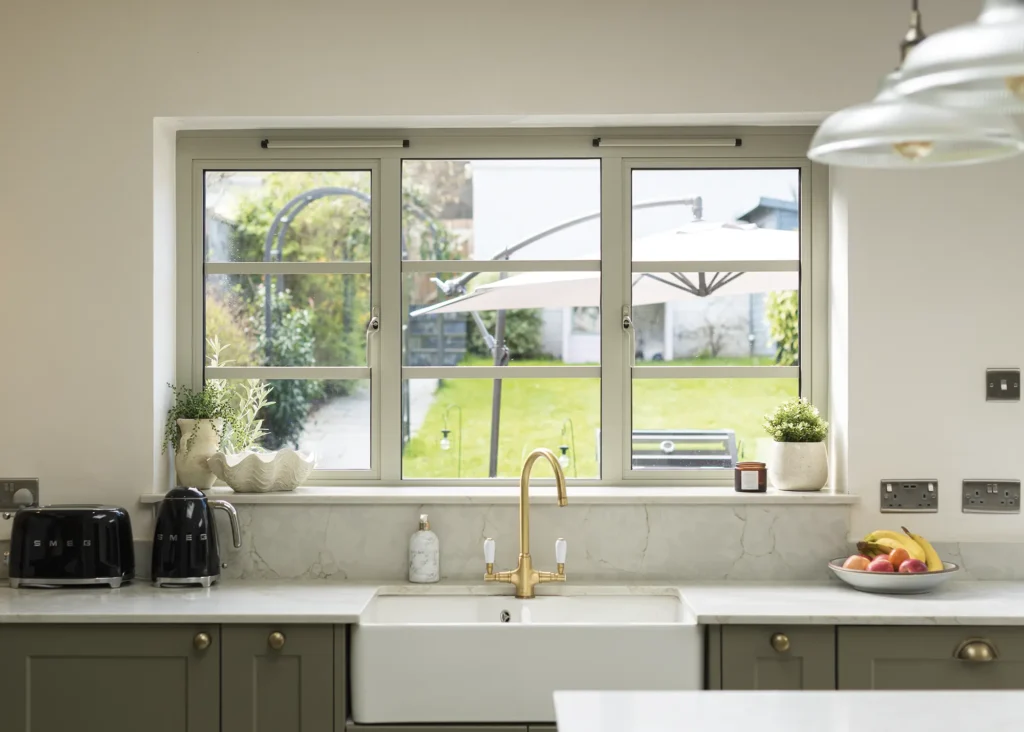
These Origin aluminium windows combine strength with a slim, sleek design. The minimal frame offers maximum light flow and minimal sightlines, while prioritising security and thermal efficiency – achieving U-values as low as 1.2W/m²K
A good example is designs with fanlights (aka toplights) above the main panes. The smaller upper windows could be top-hung openers, but it will be cheaper to go for fixed panels. You then have the choice of whether to use dummy sash fanlights to match the profile of the opening panels; or opt for direct glazed panels beaded directly into the frame. “This is something we considered with the Build It team for the Self Build Education House, and we ended up going with direct glazing to reduce the frame and let more light in,” says Matt. “A general rule of thumb is less frame and more glass will keep costs down.”
There’s a host of considerations to account for when choosing between different frame materials, but here’s a quick rundown of the major factors:
- PVCu is the cheapest option up front, but there’s a huge variance in prices depending on the window system’s quality. It is low maintenance, but generally not as durable as the alternatives. Once they deteriorate, they’ll probably need to be replaced rather than repaired, increasing whole-life costs.
- Softwood windows can offer a very good lifespan, although they will need more maintenance than PVCu. Look for products that provide a lengthy warranty on
the factory finish (six years is commonplace on stains; longer on paint) to reduce ongoing costs for upkeep. Fluctuating materials costs mean engineered softwood window prices are currently slightly higher than aluminium windows. - Aluminium windows are ultra-low maintenance thanks to their corrosion resistant coatings, meaning the frame is easy to care for. The metal will not swell, crack, split or warp over time; ensuring an extended product life. Their growing popularity makes them competitive price-wise.
- Hardwood is a slow-growing and expensive material, so the initial costs for windows in this material will be greater. However, you get the benefit of a very stable timber window offering excellent durability. As with softwood, these units come with protective coatings to maximise the lifespan.
What does an aluminium window cost in 2024?We asked IDSystems, a leading supplier of premium quality aluminium-framed glazing products, to provide a guide price for a typical window they might sell to a self builder or home renovator. They came back with indicative costings for a 2,400m (W) x 1,200mm (H) double-glazed, aluminium window featuring three panes in a top-hung / dummy sash / top-hung configuration. In 2024, the starting price for this size of aluminium window would be £1,500 plus VAT. If you wanted to upgrade above the standard specification for this size and configuration of window, further costs might include:
All these upgrades would be subject to VAT at the relevant rate. Note you can reclaim VAT on materials for self build projects. |
Do Triple-Glazed Windows Cost More?
This is always an interesting one to explore. Clearly, triple glazing requires an extra pane of glass – so in theory it should be about 50% more expensive than double glazing (minus any economies of scale).
That rings true with Kloeber’s ballpark costs: they put standard double glazing at around £157 per m² (for the glass panels only); and standard triple around £261 per m².
Of course, you might then choose to increase the spec of these with features like inert gas fillings to improve thermal performance or special coatings for particular applications (see ‘glass upgrades’).
The curveball is that a number of suppliers have been strongly pushing triple glazing with marketing offers. In recent years, we’ve seen some companies offer huge discounts, including triple for the price of double, to encourage more people onto this specification – presumably with the goal of increasing the future market share for triple glazing.
This could deliver a significant saving on the right project – but, as with any home building purchase, do your due diligence before signing up, to ensure you are happy with the quality of the window you’re getting.
How Do Colours & Finishes Impact a Window’s Cost?
Depending on the product line, you may have the opportunity to chose pretty much any colour you like – or you might be limited to a particular palette.
Whether there’s a surcharge for more unusual shades and finishes will come down to the frame material and the supplier’s process. “With aluminium windows, off-the-shelf colours are typically cheaper than special shades – although this does depend on the manufacturer,” says Matt. “With timber, the painting process is different so it’s generally the same cost, whatever RAL colour you opt for.”
Metallic and textured finishes on aluminium windows also generally cost more, as do the higher-quality timber lookalike surfaces on plastic products. “Bear in mind that standard colours usually also have a quicker lead time,” says David. This could help support a swifter, more cost-effective build.
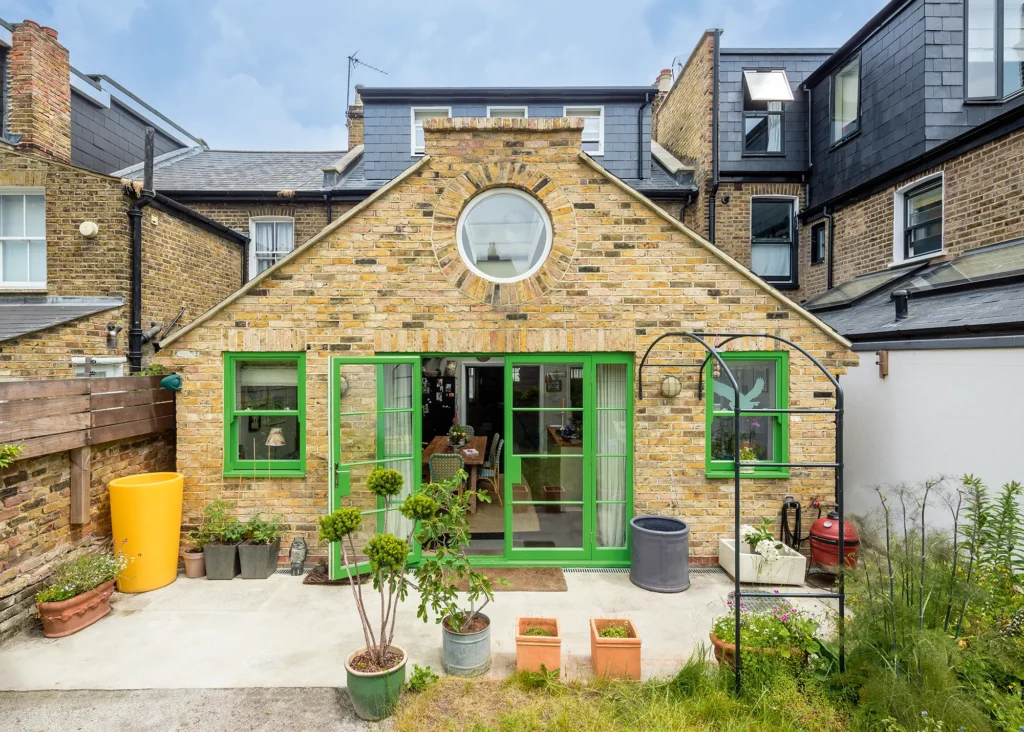
Interior designer Alice Constable Maxwell unleashed her keen eye for colour on a dilapidated Victorian home, transforming it into the perfect family dwelling. The home has been upgraded with a dormer loft conversion and a light-filled rear kitchen-diner extension with colourful glazed features and a charming interior scheme. Photo: Simon Maxwell
Dual-colour finishes are now very popular among self builders and renovators. For instance, at Build It’s Self Build Education House, we chose a stylish grey-green paint externally, and lacquered timber internally to add warmth and character to the living spaces. A dual-colour finish might add around 15% to the base cost of an aluminium window. However, there’s generally less of a price uplift for dual-colour finishes on timber or alu-clad composite products.
Should You Invest in Low-E Glass & Solar Control Coatings
A low-e (low-emissivity) coating is a special finish that reduces heat loss through a window pane. It does this while still allowing the passage of visible light – delivering excellent thermal performance without impacting on natural brightness.
In the past, low-e (low-emissivity) coatings were a premium upgrade for improving the efficiency of glazed products. These days, however, low-e comes as standard and won’t add to your window prices. “A low-e coating is mandatory on any glass now, in order to pass modern Building Regulations,” says Matt.
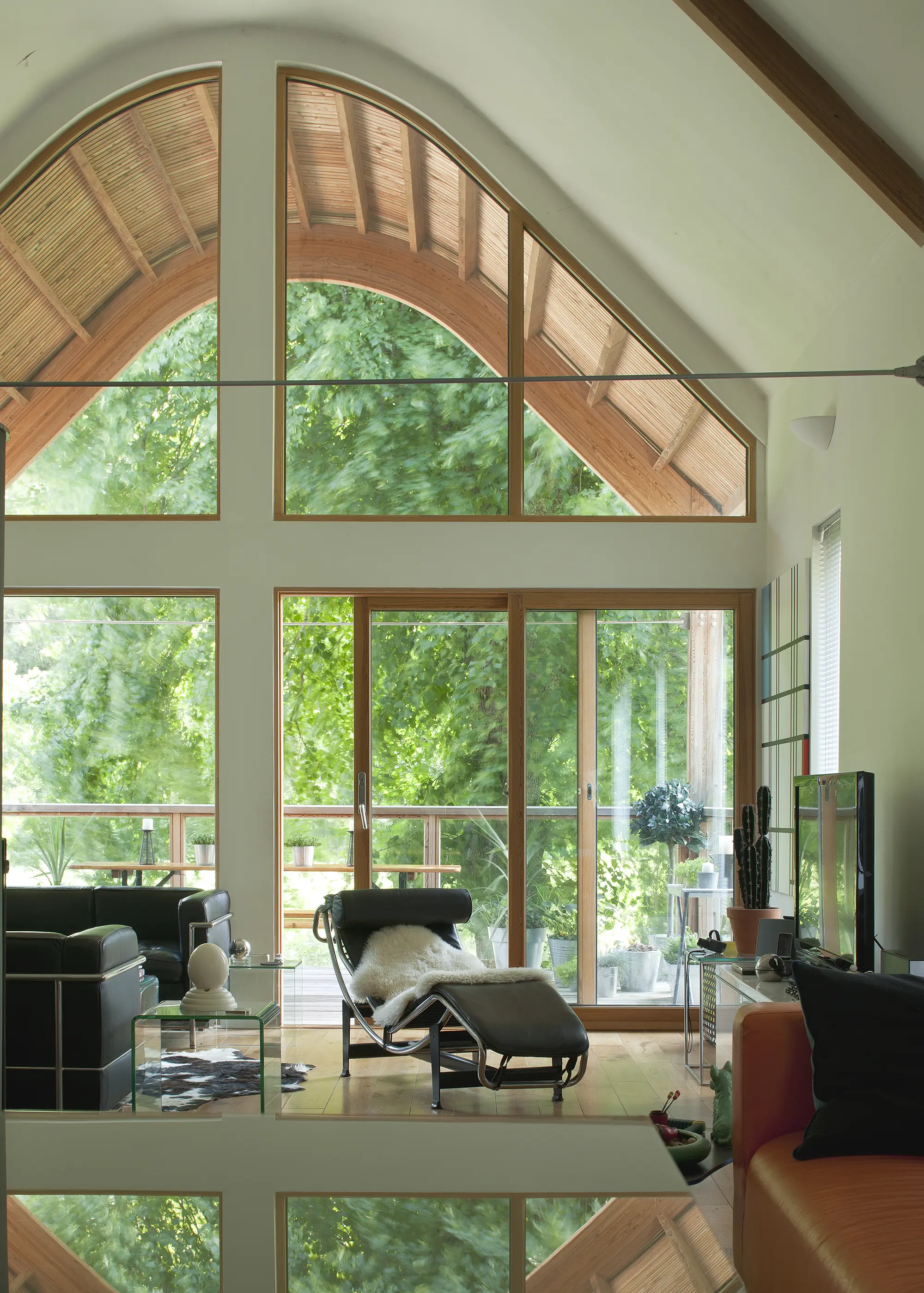
Susan and John Shearer‘s self build in the Cairngorms National Park features bespoke triple-glazed curved windows, specially made by Nordan. They are weather protected by generous eaves, but also covered in aluminium facings externally for minimum maintenance.
The excellent overall efficiency of modern homes means designers, manufacturers and installers are now often more concerned about excess heat gain through windows. That’s where solar control coatings come in. If you have large swathes of south-facing windows, a solar control upgrade will reduce the amount of incoming solar gain and minimise the risk of summer overheating. Expect to pay about 15% on top of your baseline window cost for solar control glass.
How Much Extra Does Privacy Glass for Windows Cost?
Another common requirement is privacy or opaque privacy glass. This is often a planning requirement for windows on side elevations, and sometimes useful for bathrooms and other zones.
The cost of privacy glass varies depending on the manufacture and type of finish, but coatings might add anywhere from £10-£100 to typical window prices. Expect to pay a significant premium for electric smart glass.
How Much do Trickle Vents for Windows Cost?
Depending on your project, Building Regs may require you to include trickle vents within window and door frames. “Trickle vents will always add to the price of your windows,” says Matt. “How much is very product dependent, as some items need to be manufactured differently to accommodate the vents.” So, you might pay as little as £20 for trickle vents, potentially rising to £100s if it’s a large unit that needs extra framework to accept the vent.
Do Opening Windows Cost More than Fixed Panes?
Like-for-like, fixed pane windows will always be the cheapest option, as there are no additional moving parts to pay for. There’s typically very little cost difference between top-hung and side-hung casement windows, as the components are very similar.
However, tilt-and-turn mechanisms where the windows can hinge in two directions (typically inwards as a side-hung casement and tilting from the bottom to provide secure ventilation) will cost slightly more.
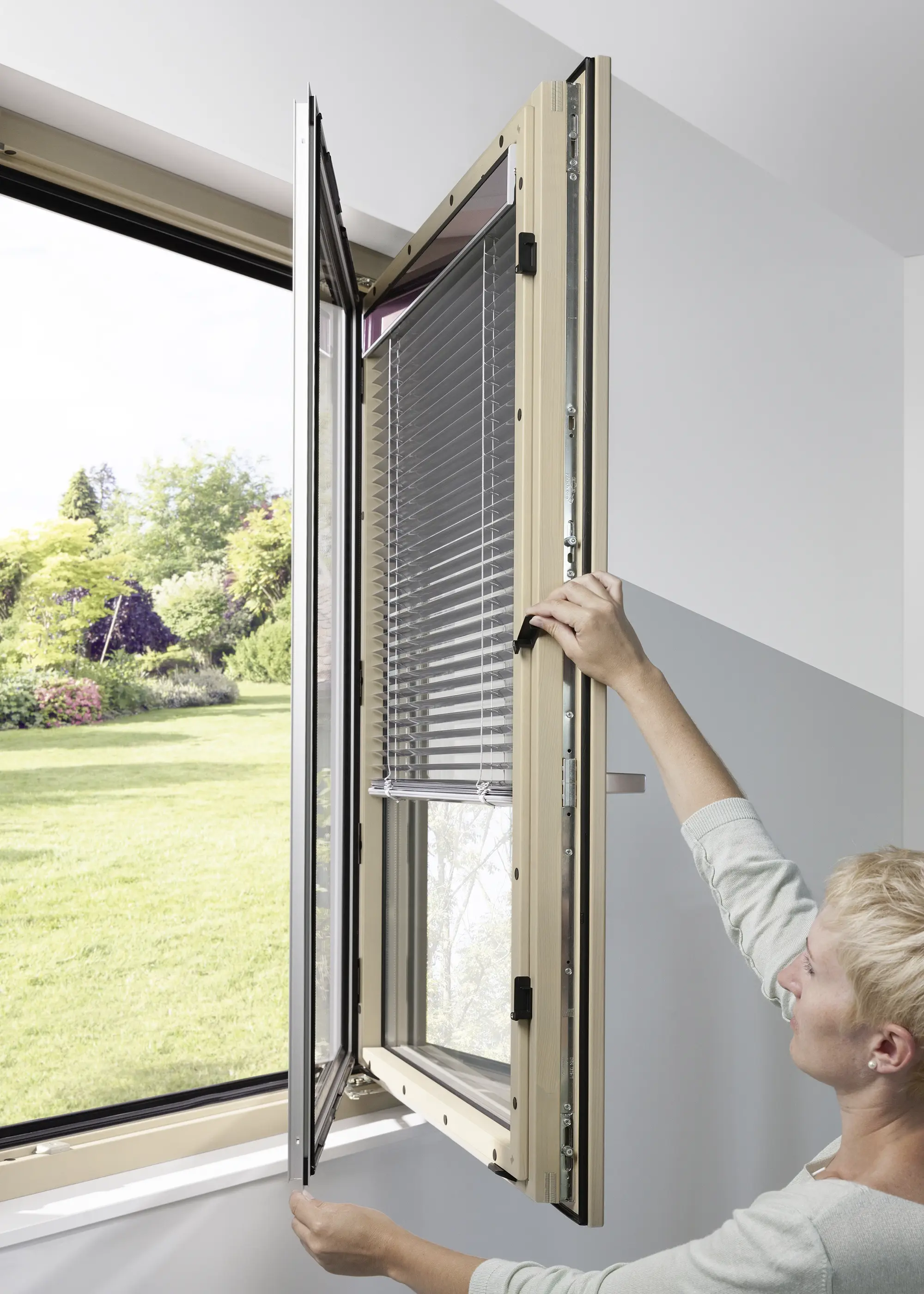
Internorm’s HV 450 timber-aluminium window has an impressively low U-value of 0.6W/m2k, and offers the option of integral blinds
Window Prices for 2024: How Much to Budget for Different Frame Materials
The table below sets out typical prices for new windows, categorised by frame material type. Naturally, your costs will vary significantly depending on the quality of the unit and exact specification you go for.
Our new window cost figures were compiled in October 2024 by collating data from suppliers and cost databases. The prices are based on a 1,200mm x 1,200mm double-glazed, double-opening casement window that would meet current Building Regulations. These benchmark prices are supply-only; installation would be an additional cost.
How much do new windows cost?
|
| Window Frame Material | Window Cost (excl. VAT) | Trickle Vent Cost (additional) | Triple Glazing Cost (additional) | Trickle Vent & Triple Glazing Combination Cost (additional) |
|---|---|---|---|---|
| Softwood Timber Window | £1,130 | £35 | £45 | £80 |
| Hardwood Timber Window | £1,220 | £35 | £45 | £80 |
| Oak Timber Window | £1,365 | £35 | £45 | £80 |
| Aluminium Window | £1,015 | £80 | £185 | £265 |
| Aluminium Window (heritage glazing bars) | £1,185 | £80 | £185 | £265 |
| Aluminium Window (super-slim frame) | £1,120 | £105 | £175 | £275 |
| Alu-clad Softwood Window | £1,280 | £40 | £95 | £40 |
| Alu-clad Hardwood Window | £1,645 | £40 | £135 | £40 |
| PVCu (white) | £800 | £TBC | £TBC | £TBC |
| PVCU (timber effect) | £920 | £TBC | £TBC | £TBC |
How Much Do Windows Cost to Install in 2024?
Many companies offer a supply-and-fit service, with labour split out in your quote – so you can see exactly what it costs. As a rough guide, on the Build It House, about 20% of the price of our windows, French doors and front door went into installation.
One top tip is that you’ll get a better price if you buy in bulk; especially on the installation side. “It’s not cost effective for a window company to fit less than four windows,” explains David Clarke. “As a reference point, for four of our 2,400mm (W) x 1,200mm (H) units, installation would cost around £200 per window, when installing at least four windows.”
Another key element to factor into the total price is access to the site – in particular, whether new or amended scaffolding will be required. Note that if you’re replacing existing windows, the openings may need preparing and redecorating by your builder at additional cost.
How Much Should You Budget for Window Replacements?
‘Should I repair or replace my home’s windows?’ is a question many of those undertaking a major renovation project will ask themselves. It’s true that your home’s windows are a vital part of its character. So, if you’re tackling a renovation project and your fenestration needs attention, deciding on exactly how to proceed and whether to specify a window replacement is not something to be taken lightly.
Knowing whether to replace windows isn’t straightforward and will vary by type, house and age. Some warning signs to look out for include:
- Your home seems hard to keep warm. Windows could be the culprit, so check whether they are noticeably draughty, letting warmth leak out and cold air in.
- Chips or cracks in your glass.
- Water leaking in.
- Condensation forming between sheets in your double glazing (essentially a window’s death sentence).
- The windows are struggling with basic functionality, for example, they’re difficult to open and close.
The cost of replacing an existing window should be very similar to buying a window for a new house. So, in terms of indicative pricing for the units themselves, you can use the table for new window costs shown above.
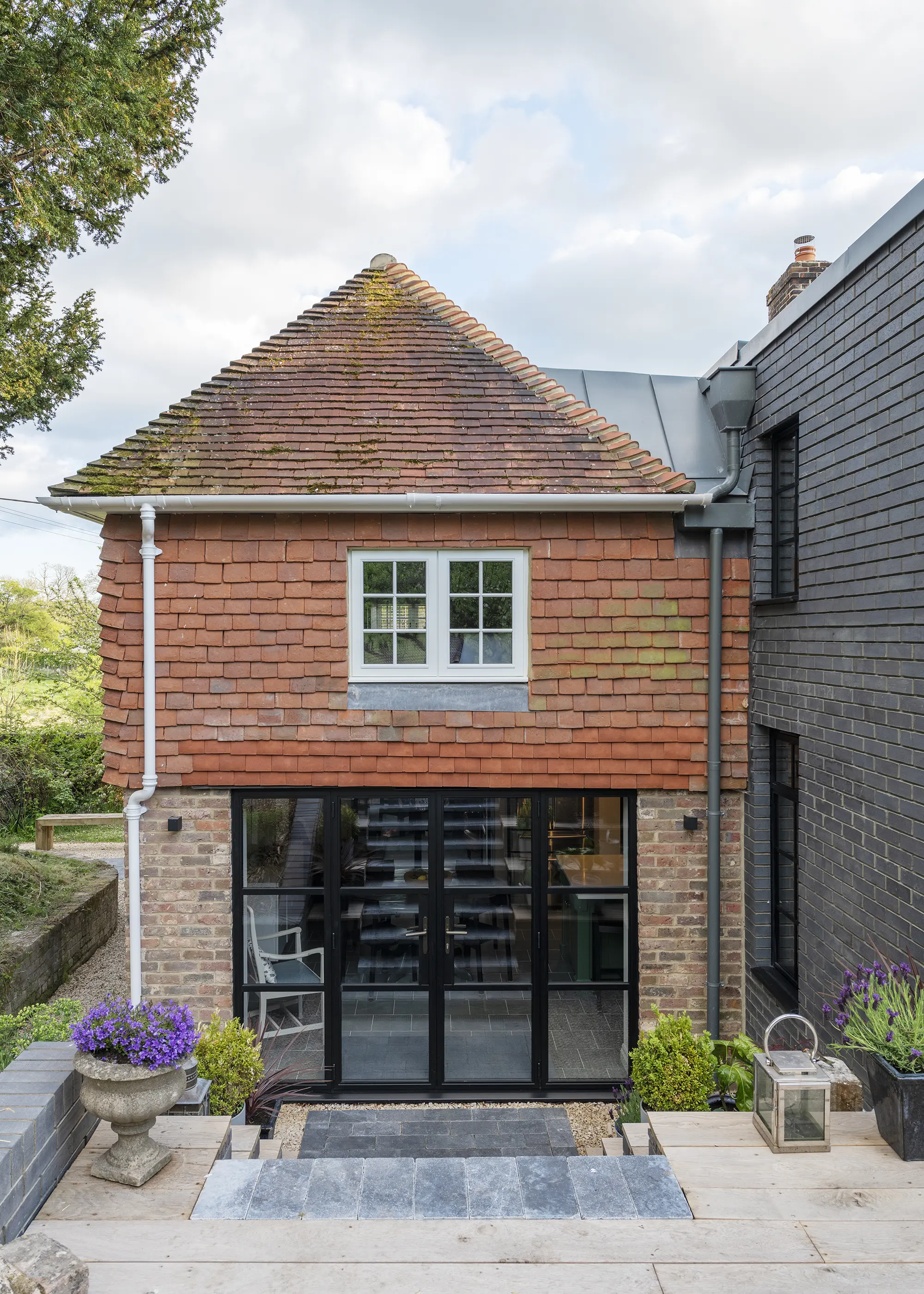
As part of their listed home renovation, Mark Camillin and Liam Denny replaced the original home’s single-glazed windows with conservation double-glazed hardwood models, alongside installing heritage-style aluminium bifolds and French doors. Photo: Richard Downer
The key differentials will come in terms of the labour involved in removing and disposing of the old window or windows, prepping and/or repairing openings, and any unusual requirements in terms of size and style. As a result, it will usually cost slightly more to completely replace an existing window than to install one in a new opening.
This article was originally published in September 2023 and has been updated in July 2024 to reflect up-to-date window costs.


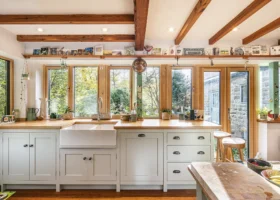




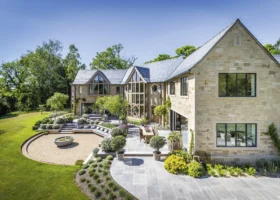


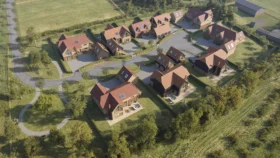
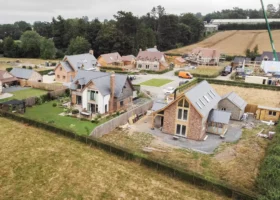
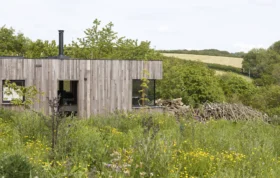


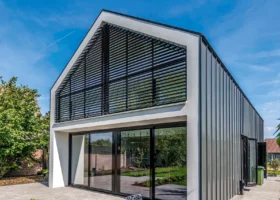

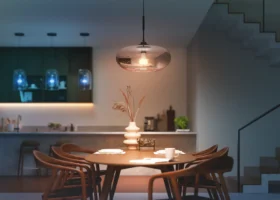
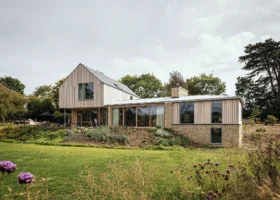

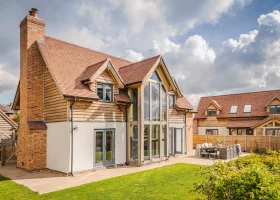


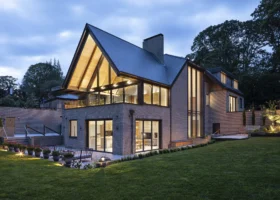
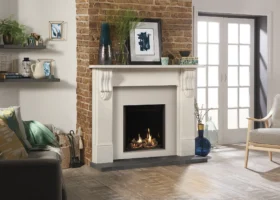

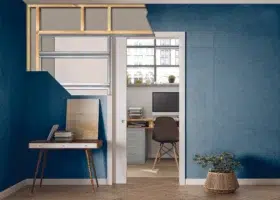








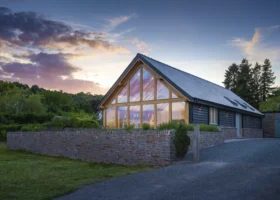

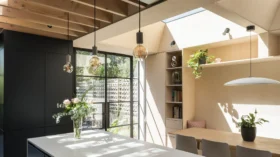

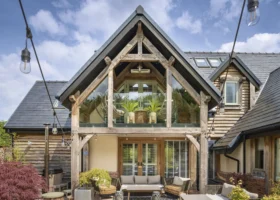
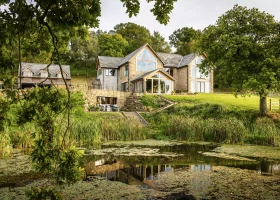
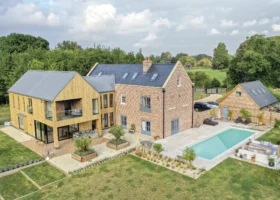
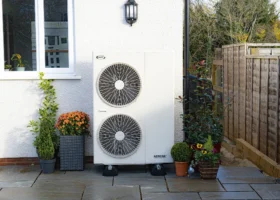
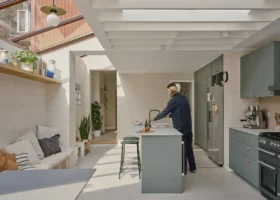
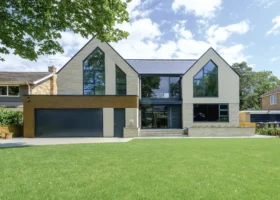
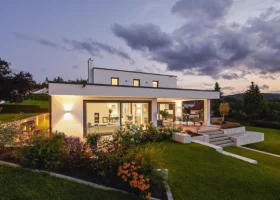
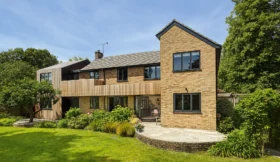
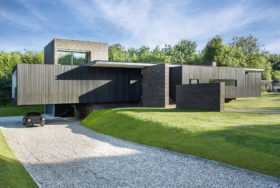

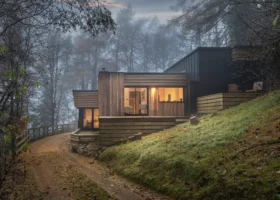

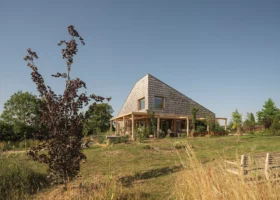
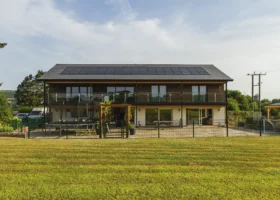
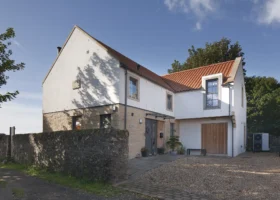


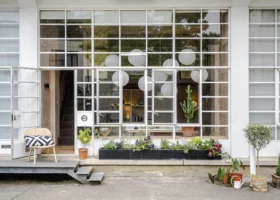
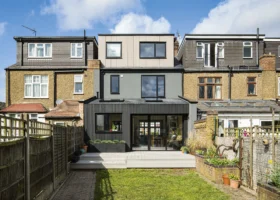

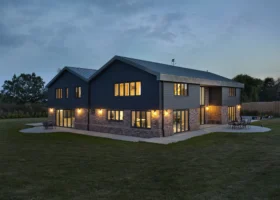
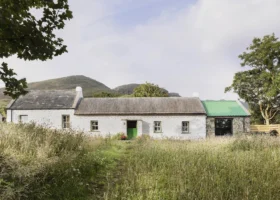





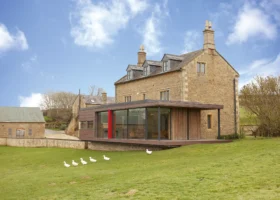














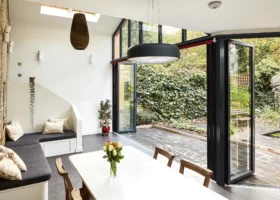




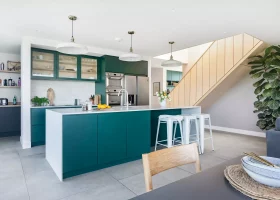






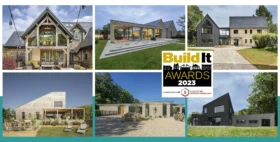


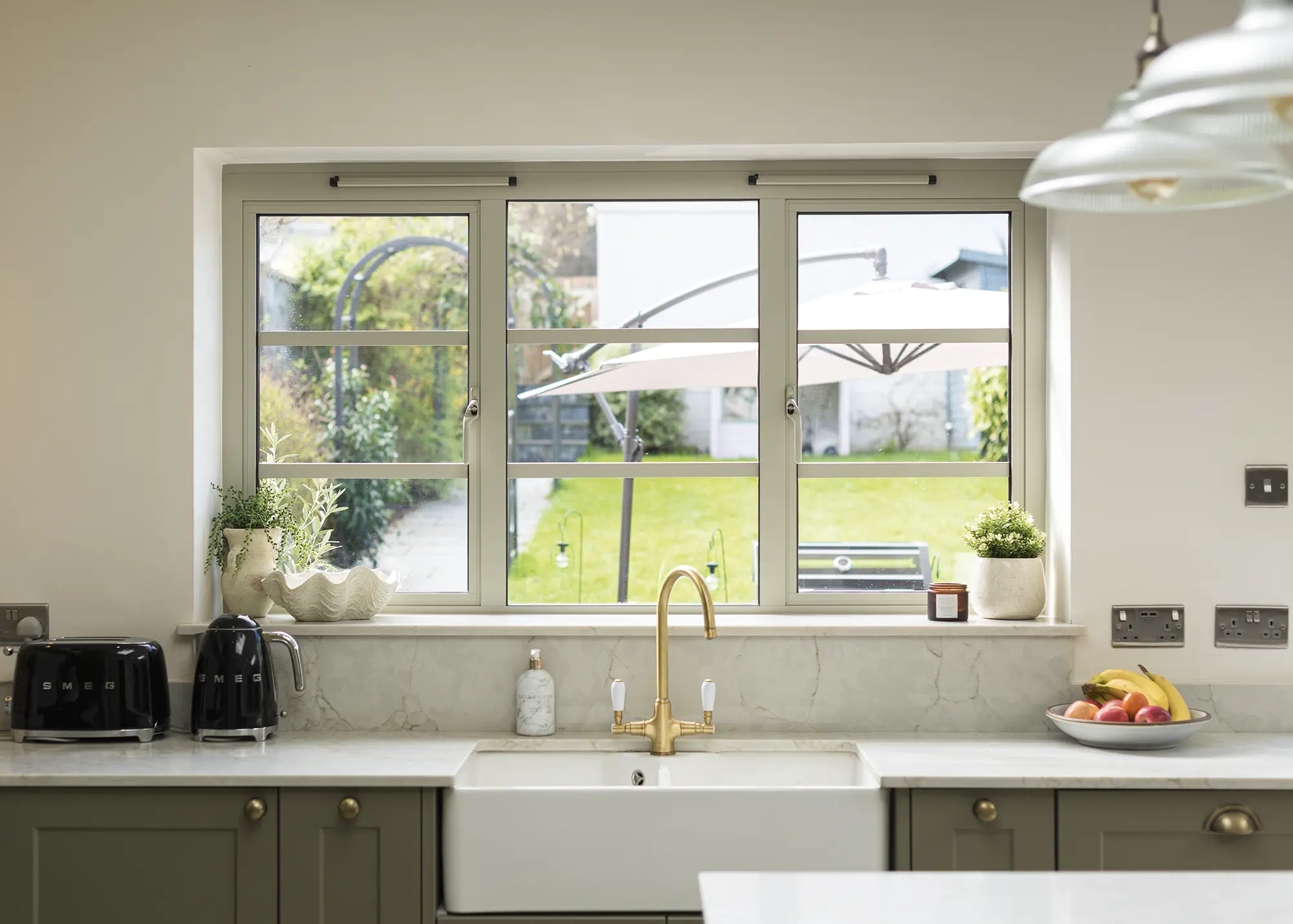
 Login/register to save Article for later
Login/register to save Article for later



